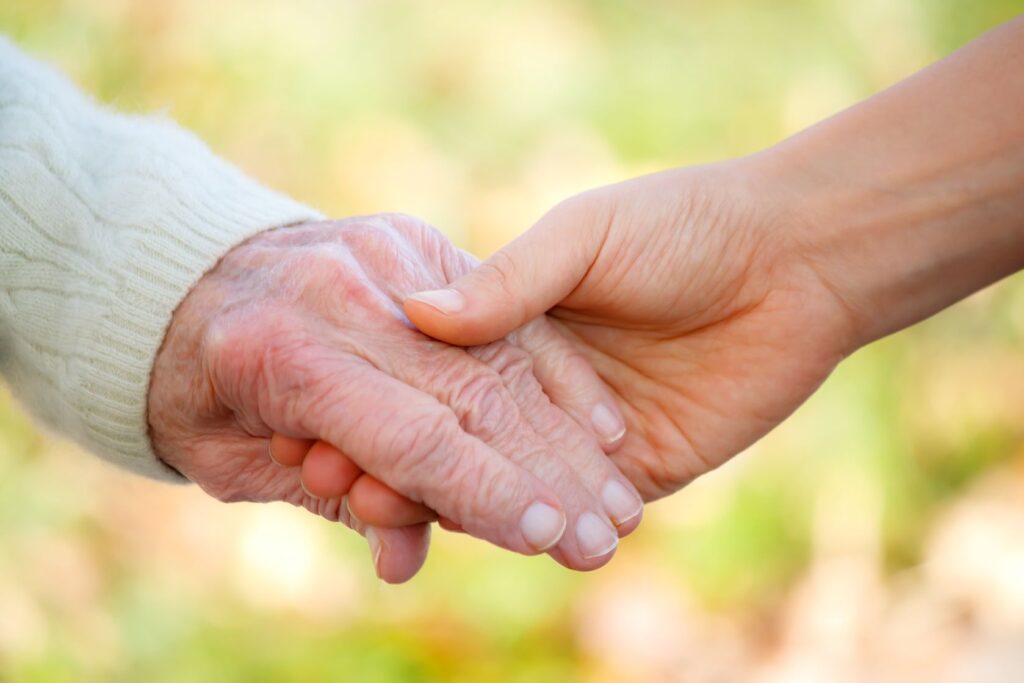Extending help and respect to senior citizens is an indispensable facet of constructing a compassionate and inclusive society
By Ajaz Rashid
In the contemporary hustle and bustle of our rapidly advancing world, it is all too easy to inadvertently overlook the profound reservoir of wisdom and experiential richness that our esteemed senior citizens and elders bring to the tapestry of our communities. Amidst the whirlwind of our daily existence, it becomes imperative to pause and reflect upon the indelible contributions made by these venerable individuals, whose impact on society persists in myriad and often understated ways. Undeniably, senior citizens stand as a veritable cornerstone of our societal fabric, endowed with a trove of life experiences and knowledge that serves as a fount of sagacity and inspiration.
As a society, we find ourselves indebted to the older generation, whose enduring contributions have played a pivotal role in sculpting the contours of the world we inhabit today. It is not merely a moral but a societal duty to ensure that these venerable individuals traverse their later years with an unwavering sense of dignity, comfort, and respect. Their selfless contributions, comprising wisdom, experience, and decades of industrious toil, have collectively shaped the reality we presently inhabit. Thus, it falls upon us, as a collective, to guarantee that they traverse their golden years enveloped in an ambiance of dignity, respect, and the requisite support.
In the broader context, extending due regard and assistance to senior citizens serves to fortify the very fabric of our communities. Such acts foster a sense of belonging, interdependence, and a culture characterized by empathy and compassion. Beyond being a mere moral obligation, the imperative to assist and respect senior citizens is a duty we owe to those who have paved the way for our present and future. Undoubtedly, senior citizens constitute a valuable yet oft-overlooked segment of our society, and it is incumbent upon us to recognize and acknowledge their contributions.
Understanding the Needs of Elders and Senior Citizens
The aging process, with its concomitant physical, mental, and emotional challenges, necessitates a nuanced comprehension to offer authentic help and respect to senior citizens. Discerning and empathizing with these challenges forms the cornerstone of providing appropriate assistance. Common challenges encompass diminished physical capabilities, heightened susceptibility to health issues, feelings of loneliness and isolation, cognitive decline, and the need for assistance at public offices due to technological disparities.

Physical limitations manifest as a decline in mobility and strength, rendering routine tasks more arduous for seniors. Health issues become more prevalent, given the natural waning of immunity with age. Loneliness and isolation often ensue due to the loss of social connections, potentially leading to mental health issues. Cognitive decline, coupled with challenges at public offices, accentuates the need for societal understanding and support.
The provision of assistance, both tangible and emotional, becomes imperative in light of these challenges. Seniors may require aid in daily tasks, health management, technological adaptation, and active listening to their life stories and perspectives. Moreover, financial support, accessible housing, and emotional sustenance contribute significantly to the well-being of senior citizens.
Understanding and addressing the diverse needs of senior citizens underscores a collective societal responsibility to uphold, support, and respect them in multifaceted ways. Practical approaches include financial support and planning, ensuring safe and accessible housing, providing emotional sustenance, offering technological assistance, active listening, and actively engaging in assisting with daily tasks.
Financial Support and Planning:
Navigating the complexities of financial matters becomes increasingly intricate with age. Assisting seniors in managing their finances, apprising them of their entitlements, and safeguarding against financial scams becomes paramount. Seeking legal advice for estate planning emerges as a crucial step to protect assets and instill a sense of security.
Ensuring Safe and Accessible Housing:
Adapting living conditions to ensure safety and accessibility is vital for many seniors. This may involve installing handrails, ramps, or modifying bathroom facilities to enhance both the quality of life and prevent accidents. Addressing homelessness and enacting protective laws are essential considerations for safeguarding seniors’ living conditions.
Providing Emotional Support:
Senior citizens frequently grapple with emotional challenges such as loneliness and isolation. Spending quality time, engaging in meaningful conversations, and fostering empathy contribute significantly to their mental well-being. Alleviating social media-induced isolation is essential for bolstering emotional connections within families.
Technological Assistance:
Many seniors may find themselves unfamiliar with modern technology, necessitating assistance in adopting smartphones or computers. Offering guidance in navigating digitized spaces, particularly public offices, ensures they can access essential services without technological barriers.
Listen Actively:
Respecting and honoring seniors involves actively listening to their stories, experiences, and advice. By dedicating undivided attention to their narratives, valuable insights and understanding can be gleaned, fostering mutual respect and appreciation.

Offer Assistance:
Recognizing that seniors may require assistance with daily tasks, errands, or medical appointments underscores the importance of offering a helping hand. These acts of kindness demonstrate care and a willingness to support, fostering a sense of community and interconnectedness.
Respect Their Independence and Perspective:
While assistance is crucial, preserving seniors’ autonomy remains equally imperative. Encouraging and enabling them to make decisions about their lives upholds their independence. Respecting diverse viewpoints shaped by experience is integral to fostering meaningful discussions and preserving mutual respect.
Include Them in Activities:
Combatting isolation involves actively including seniors in social activities, family events, and community gatherings. These engagements provide essential companionship, counteracting the detrimental effects of social exclusion.
Support Their Health:
Given the health challenges seniors often confront, encouraging regular check-ups, adherence to prescribed medications, and engaging in physical activities becomes pivotal. Collaborating on maintaining a balanced diet and active lifestyle contributes to their overall well-being.
Ensure Safety:
Addressing safety concerns, especially for seniors living alone, involves creating a secure home environment. Installing handrails, ramps, and regularly checking living spaces for potential hazards mitigates risks and ensures their well-being.
Promote Lifelong Learning:
Encouraging seniors to pursue continuous learning through hobbies, classes, or volunteer work contributes to keeping their minds active and fosters a sense of community engagement.
Advocate for Their Rights:
Safeguarding the rights and well-being of senior citizens involves advocating for policies and programs that prioritize their needs. Supporting organizations dedicated to senior issues and addressing elder abuse are vital steps in upholding their rights.
Extending help and respect to senior citizens is an indispensable facet of constructing a compassionate and inclusive society. Our elders, with their myriad contributions, deserve our gratitude, support, and respect. By implementing the outlined guidelines, we can ensure that senior citizens experience their later years with dignity and fulfillment. In reciprocation, their wealth of wisdom and experiences enrich our lives, forging a symbiotic relationship that strengthens and deepens the fabric of our communities. Let us collectively celebrate age and value senior citizens for their unique contributions to society.
Leave a Reply